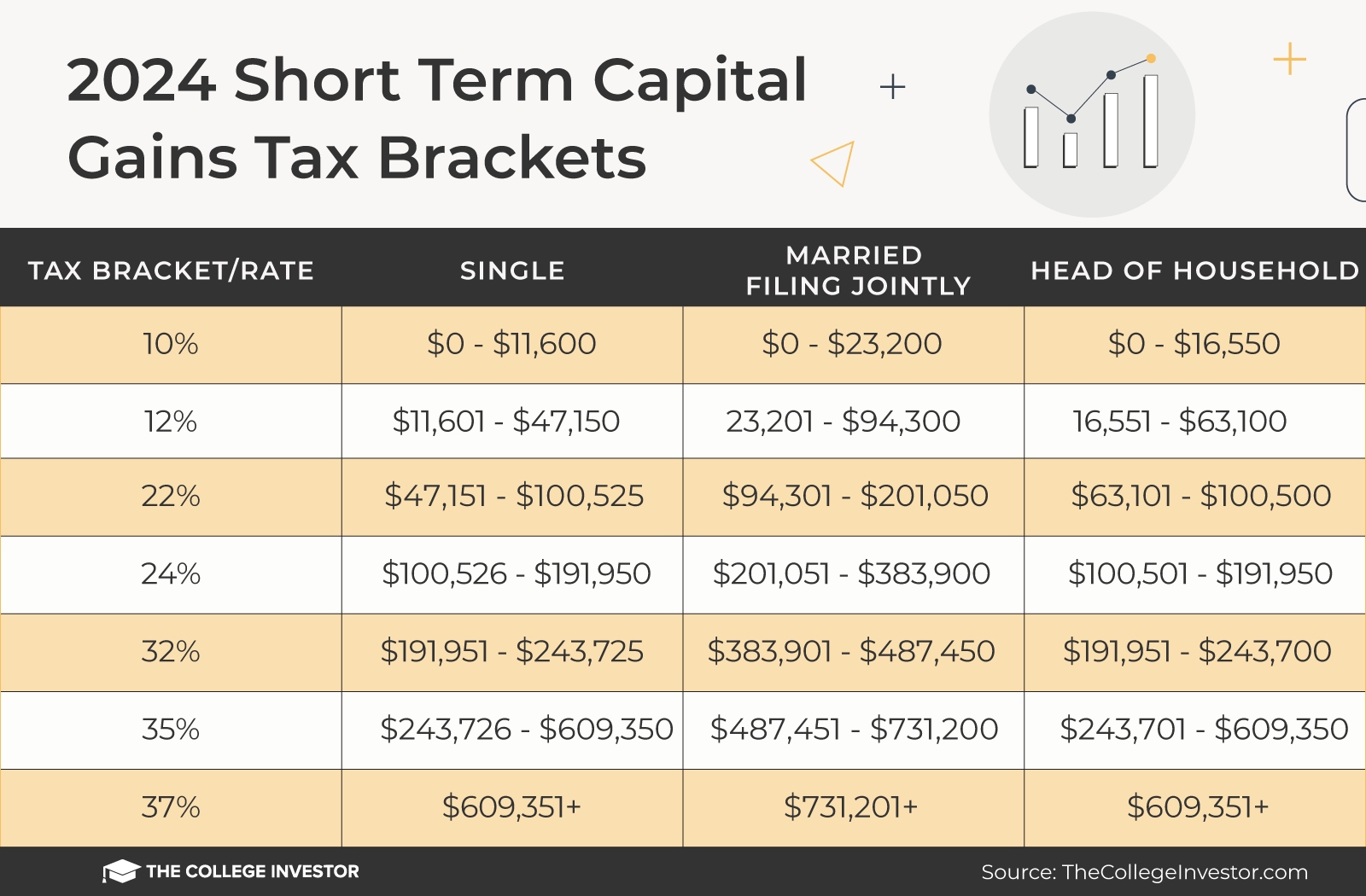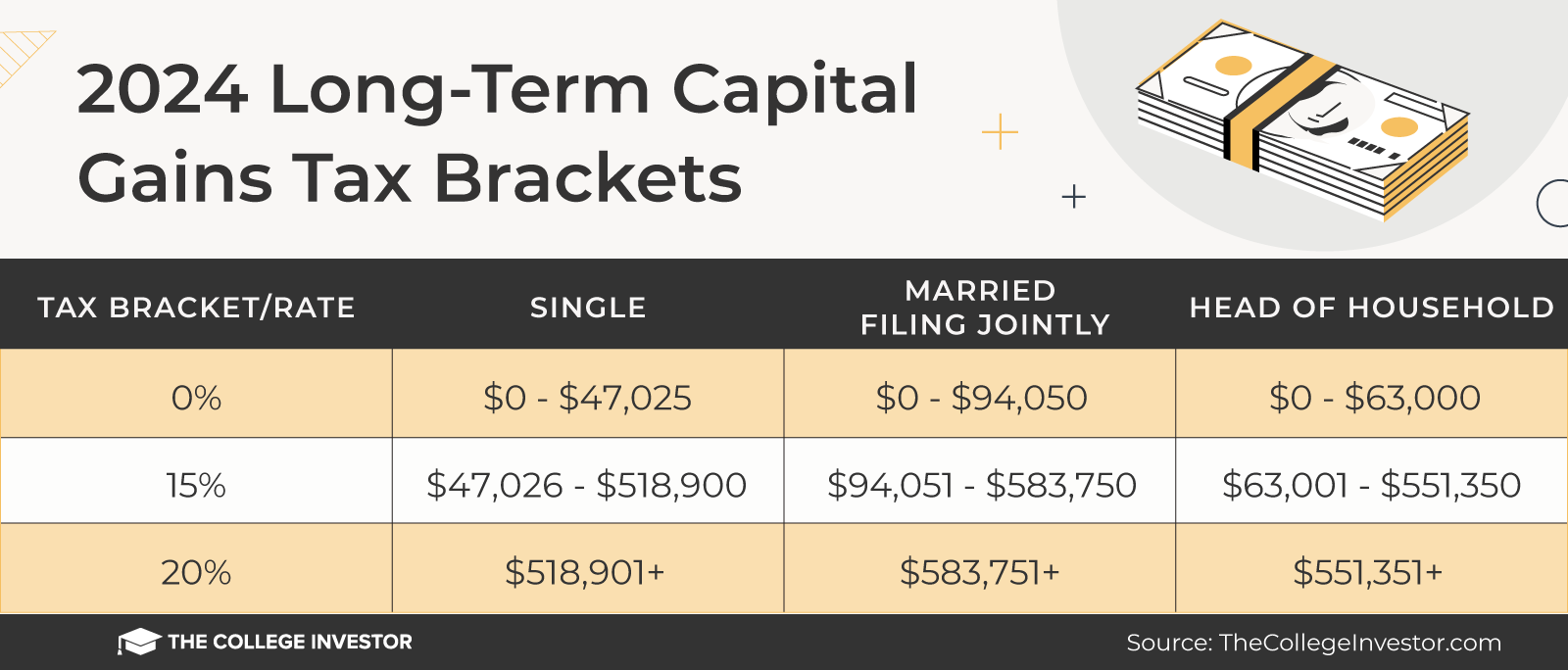
Key Points
- President Biden’s 2025 budget proposal includes a significant increase in the top capital gains tax rate to 44.6%
- The proposed tax rate, coupled with state taxes, would lead to a combined rate exceeding 50% in several states, with California potentially facing a rate as high as 59%
- The plan also includes a proposal to remove the stepped-up basis on inheritances, potentially subjecting estates to capital gains taxes upon the transfer of assets after death.
President Joe Biden has unveiled a proposal in his 2025 budget that would elevate the top marginal rate on long-term capital gains and qualified dividends to an unprecedented 44.6%. This proposal would set the top capital gains tax at the highest rate the country has seen in over a century.
Currently, capital gains taxes are levied on the profit from the sale of assets such as stocks or real estate, which have appreciated over time. The increase, according to the budget proposal, aims to ensure "that wealthy individuals contribute a fairer share to the economy".
However, this change does not occur in isolation. When combined with state-level capital gains taxes, the total tax burden in states like California could reach as high as 59%, with other states like New Jersey, Oregon, Minnesota, and New York also seeing rates surpassing 50%.
Major Concerns
This proposed tax increase has sparked concerns among investors and business owners, especially those considering the sale of businesses they have nurtured from inception. Typically, capital gains are not adjusted for inflation, which means that taxes could be levied on economic gains that are not actual increases in purchasing power. This aspect of the tax code becomes particularly contentious in periods of high inflation, such as the current economic climate, effectively making it a tax on inflation-induced "gains."
Furthermore, the tax structure around capital gains often results in what many see as double taxation. For instance, profits from investments in corporate stocks are taxed at the corporate level and then again at the individual level when gains are realized. The Biden administration has also floated a proposal to increase the corporate tax rate from 21% to 28%, adding another layer to the fiscal burden on investments.
The international perspective adds another dimension to the debate. Comparatively, the United States, under Biden’s proposal, would have a significantly higher top capital gains tax rate than countries like China, where the rate stands at 20%. Critics argue that such a high tax rate could undermine the competitive position of the United States in attracting and retaining capital investment.
Finally, there is no plan to reduce Federal spending, which has elevated to levels never before seen in the United States.
Capital Gains Tax History
Historically, capital gains taxes were instituted in 1922 with a rate of 12.5%. The dramatic rise proposed in President Biden’s budget highlights a bold shift in tax policy, but it is not without precedent.
Similar initiatives have faced intense pushback in the past, as was the case in 1976 when Congress attempted to eliminate the stepped-up basis—a method that adjusts the value of an inherited asset for tax purposes. The complexity and opposition from various stakeholders led to its repeal before implementation.
Adding to the complexity, Biden's budget proposes a new form of taxation at death by eliminating the stepped-up basis and instituting a mandatory capital gains tax on inherited assets. This has been likened to a second "Death Tax," and if implemented, could significantly affect estate planning and the financial legacies of many American families.
Currently, the highest capital gains tax brackets are 37% for short term gains, and 20% for long term gains.


Summary
The Biden administration’s initiative, part of a broader goal to generate approximately $5 trillion in tax revenue over the next decade, sets the stage for a robust debate on the future of investment and wealth distribution in the United States.
Don't Miss These Other Stories:
Editor: Colin Graves
The post President Biden Proposes Historic Increase In Capital Gains Tax appeared first on The College Investor.
from The College Investor

Key Points
- President Biden’s 2025 budget proposal includes a significant increase in the top capital gains tax rate to 44.6%
- The proposed tax rate, coupled with state taxes, would lead to a combined rate exceeding 50% in several states, with California potentially facing a rate as high as 59%
- The plan also includes a proposal to remove the stepped-up basis on inheritances, potentially subjecting estates to capital gains taxes upon the transfer of assets after death.
President Joe Biden has unveiled a proposal in his 2025 budget that would elevate the top marginal rate on long-term capital gains and qualified dividends to an unprecedented 44.6%. This proposal would set the top capital gains tax at the highest rate the country has seen in over a century.
Currently, capital gains taxes are levied on the profit from the sale of assets such as stocks or real estate, which have appreciated over time. The increase, according to the budget proposal, aims to ensure "that wealthy individuals contribute a fairer share to the economy".
However, this change does not occur in isolation. When combined with state-level capital gains taxes, the total tax burden in states like California could reach as high as 59%, with other states like New Jersey, Oregon, Minnesota, and New York also seeing rates surpassing 50%.
Major Concerns
This proposed tax increase has sparked concerns among investors and business owners, especially those considering the sale of businesses they have nurtured from inception. Typically, capital gains are not adjusted for inflation, which means that taxes could be levied on economic gains that are not actual increases in purchasing power. This aspect of the tax code becomes particularly contentious in periods of high inflation, such as the current economic climate, effectively making it a tax on inflation-induced "gains."
Furthermore, the tax structure around capital gains often results in what many see as double taxation. For instance, profits from investments in corporate stocks are taxed at the corporate level and then again at the individual level when gains are realized. The Biden administration has also floated a proposal to increase the corporate tax rate from 21% to 28%, adding another layer to the fiscal burden on investments.
The international perspective adds another dimension to the debate. Comparatively, the United States, under Biden’s proposal, would have a significantly higher top capital gains tax rate than countries like China, where the rate stands at 20%. Critics argue that such a high tax rate could undermine the competitive position of the United States in attracting and retaining capital investment.
Finally, there is no plan to reduce Federal spending, which has elevated to levels never before seen in the United States.
Capital Gains Tax History
Historically, capital gains taxes were instituted in 1922 with a rate of 12.5%. The dramatic rise proposed in President Biden’s budget highlights a bold shift in tax policy, but it is not without precedent.
Similar initiatives have faced intense pushback in the past, as was the case in 1976 when Congress attempted to eliminate the stepped-up basis—a method that adjusts the value of an inherited asset for tax purposes. The complexity and opposition from various stakeholders led to its repeal before implementation.
Adding to the complexity, Biden's budget proposes a new form of taxation at death by eliminating the stepped-up basis and instituting a mandatory capital gains tax on inherited assets. This has been likened to a second "Death Tax," and if implemented, could significantly affect estate planning and the financial legacies of many American families.
Currently, the highest capital gains tax brackets are 37% for short term gains, and 20% for long term gains.


Summary
The Biden administration’s initiative, part of a broader goal to generate approximately $5 trillion in tax revenue over the next decade, sets the stage for a robust debate on the future of investment and wealth distribution in the United States.
Don't Miss These Other Stories:
Editor: Colin Graves
The post President Biden Proposes Historic Increase In Capital Gains Tax appeared first on The College Investor.
https://thecollegeinvestor.com/wp-content/uploads/2016/02/CollegeInvestor_1280x720Should_You_Pay_Someone_To_Do_Your_Taxes.png April 25, 2024 at 08:08PM https://ift.tt/mqgsnK9
0 Comments